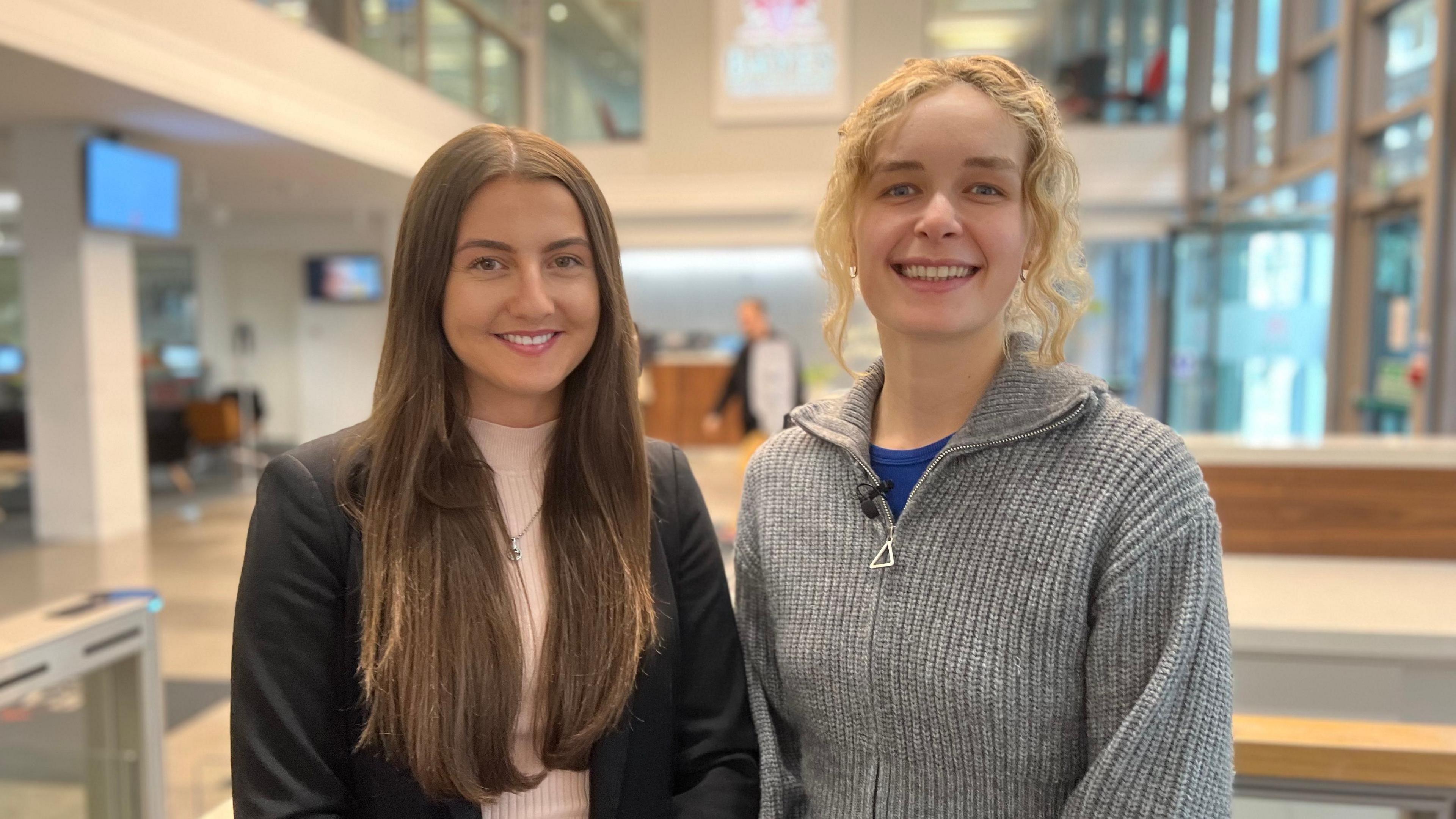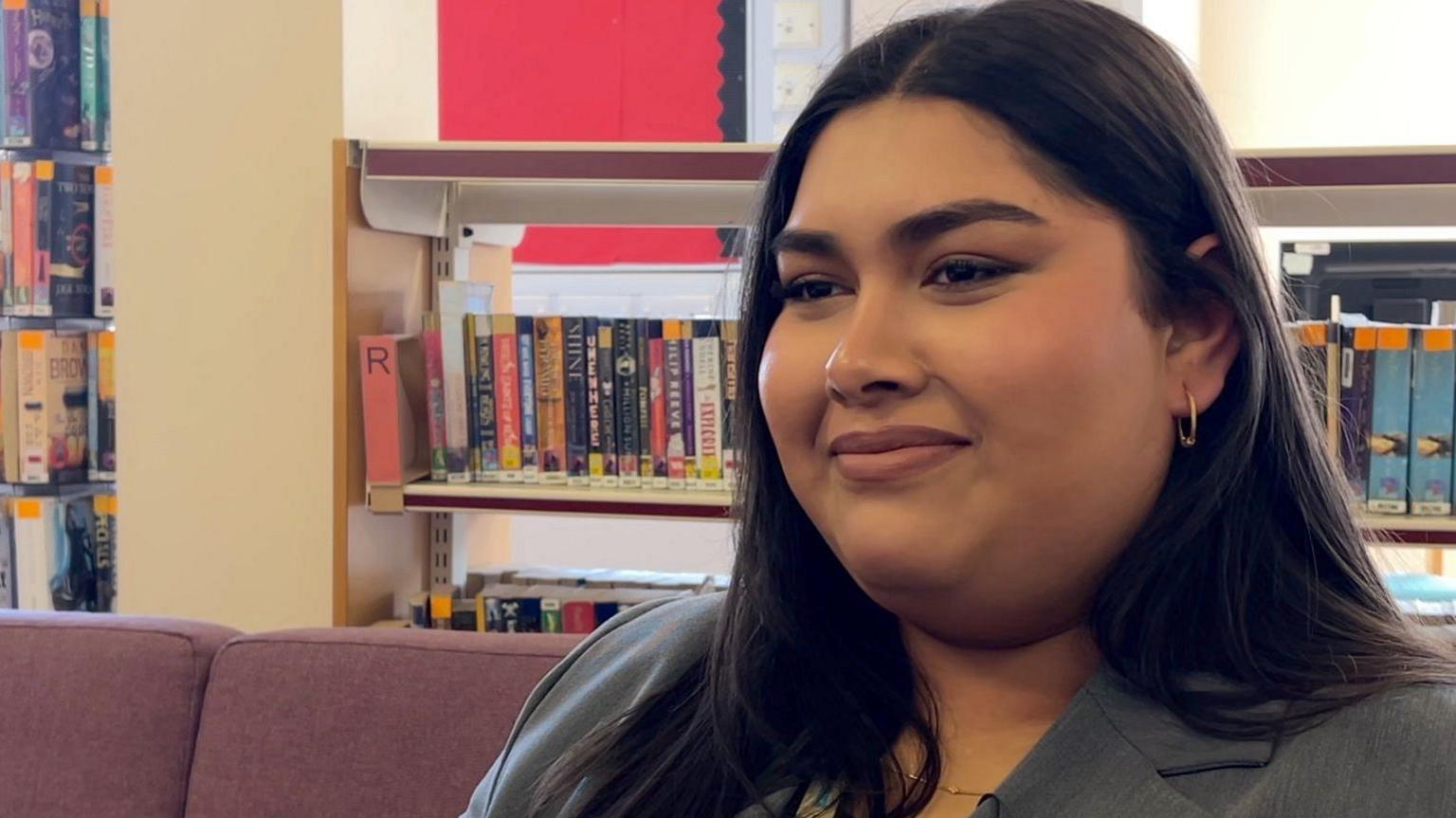'Near-peer' mentor scheme helps young people into business

Student Gina Sparks with her mentor Jodie Price (right) at Bayes Business School
- Published
An innovative mentoring scheme is helping young people from disadvantaged backgrounds towards careers in business.
The Schools Engagement Programme at Bayes Business School near Barbican matches local sixth formers and first-year university students to be near-peer mentors.
The school’s Dean says that the programme is having an impact on social mobility, while teaching its students valuable soft skills for their future careers, such as communication and team-working.
The assistant head teacher at Central Foundation Girl’s School in Bow, East London says that she has seen her pupils grow in confidence during their mentorship.
Gina Sparks, 24, credits her mentor, Jodie Price, 25, for guiding her towards a job in sports marketing.
They are both progressing in business careers after graduating.
Gina said: "It’s someone who’s close to you in age and I actually think it helps you being female in business as well. It’s someone who has been through it all before."
Being a mentor was also a positive experience.
Jodie, who works at JL Price Consulting, said she understands why it is important to connect with people "who look like you in a position you want to be in".
She added: "Even though I was the mentor we were both talking about wanting to be women in business.
"It’s nice to know that it’s not just a dream you’ve got on your own. So I think that whole ‘similar to me’ thing helps too."
She added that is also helped her develop her own workplace skills.
"You get told the importance of soft skills - empathy, listening, all of those vital things - but you’re not really assessed on them…you don’t get a chance to practice it.
"Having it in that relatively low-pressured environment, someone you feel you can connect to, really helped to hone those skills."
Bayes Business School mentors are given training before they begin.
The programme is distinct from other volunteer mentoring because it is a module on the degree course, upon which students are assessed and can get extra credits towards their final grading.
The undergraduates gain soft skills which are crucial in business, especially as parts of the workplace will become more automated in the future, such as the growth of AI.
Since it began in 2016, 1,090 young people have been supported as mentors or mentees.
Dean of Bayes Business School, Andre Spicer said: "One of the things that employers today demand are not just hard technical skills such as how to do a balance sheet or how to do financial modelling but also softer skills such as mentoring and coaching people - working in teams and groups.
"So our students really get these soft skills through working in this programme."
He says it is having an impact on social mobility because it raises aspirations in young people from underprivileged backgrounds and encourages them to consider further education.
Pupils in this project were chosen from six secondary schools in Haggerston, Stepney, Manor Park, Islington, Tottenham, and Bow, which have higher than national averages of children on free school meals and where English is not their first language.
What are soft skills?
Active listening and clear communication
Adaptability to a changing environment or other people's ideas and needs
Empathy towards people from different backgrounds
Problem-solving

Anjali Batra says the mentor programme has put her on a path towards a business apprenticeship
Anjali Batra is in year 12 at school and has been meeting her mentor, who is studying Business Management, every other week.
"I had no idea what I wanted to do in the future at all.
"I was questioning everything - was the course I was doing right now for me or not?"
Through discussions with her mentor, she’s decided on a business apprenticeship.
"I feel like if I hadn’t done that mentoring programme, I wouldn’t have known and would still be in that grey area.
"And it’s really pushing me because not only have I seen the difference in myself since doing this mentoring programme but other people are witnessing it as well."
Assistant headteacher at Anjali’s school, Saiqua Zaneb, says the programme is having an impact.
"The things I hear all the time are, 'we feel like someone’s holding us to account', 'we’re feeling more confident', 'we want to network'.
"And those things, I haven’t heard for a long, long time."
The Schools Engagement Programme has been funded by The Portal Trust, which has invested £635,000 since it began eight years ago.
Baynes Business School has said it plans to grow the programme by working with more secondary schools across London, extending it within the university and exporting it as a model to other institutions so they replicate its success.
The business school has also called on government and non-government networks to join the initiative to advance social mobility.